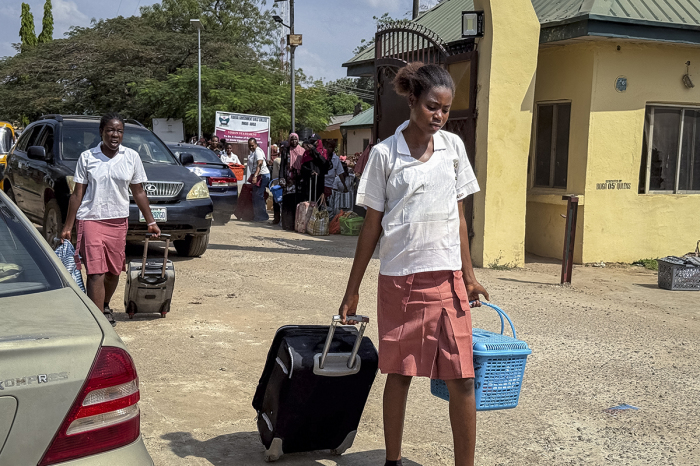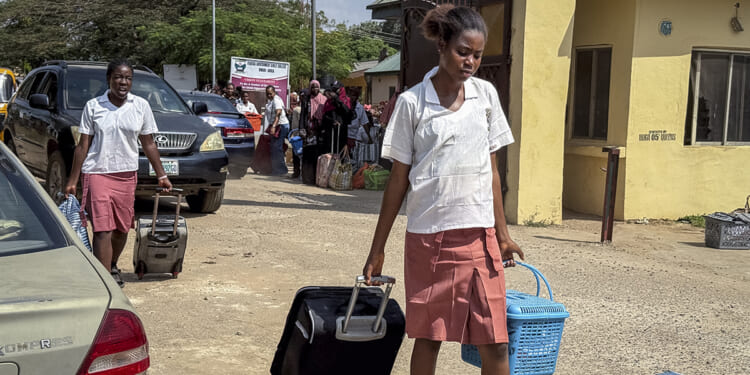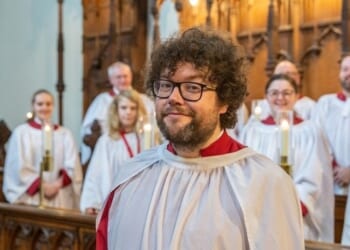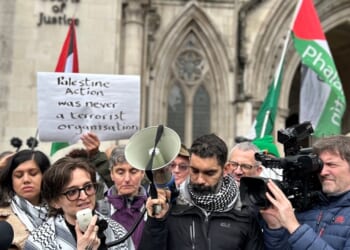
Twenty-four schoolgirls abducted in northwest Nigeria were released Sunday following a security operation. Their kidnapping was one of several mass abductions across the country over the previous week that left hundreds still missing.
The students were taken on Nov. 17 from Government Girls Secondary School in Maga, Kebbi state, when armed men entered the compound around 4 a.m. local time, the U.K.-based group Christian Solidarity Worldwide said in a statement sent to The Christian Post.
The attackers killed the assistant principal on-site and left a security guard severely injured. He later died in the hospital. The abduction occurred shortly after a military detachment had withdrawn from the school premises.
Two of the girls escaped in the hours after the attack. The remaining 24 were freed on Nov. 25 after the deployment of police tactical teams, army units and local vigilante groups.
The release in Kebbi followed a larger kidnapping incident on Friday in Niger state, where gunmen stormed St. Mary’s Catholic School in Papiri and abducted 303 children and 12 staff members. That attack, which took place just four days after the Maga raid, prompted the Niger state government to shut down all schools beginning Saturday. No group has claimed responsibility.
Fifty children escaped captivity by Saturday and made their way back to their homes, said the Rev. Bulus Dauwa Yohanna, chairman of the Christian Association of Nigeria in Niger state, who’s also proprietor of the school.
Yohanna said the school learned about the escapes only after contacting the children’s families. “As much as we receive the return of these 50 children that escaped with some sigh of relief, I urge you all to continue in your prayers for the rescue and safe return of the remaining victims,” he said, CBS News reported.
The incident in Niger state drew an international response. Pope Leo XIV addressed the matter during Sunday mass at St. Peter’s Square and called for the release of all hostages.
Nigerian President Bola Tinubu said his administration would ensure the safe return of all kidnapped persons. “Let me be clear: I will not relent. Every Nigerian, in every state, has the right to safety — and under my watch, we will secure this nation and protect our people,” he said in a statement.
Other abductions took place across northern Nigeria within the same week.
On Sunday, fighters from Islamic State West Africa Province abducted 13 girls between the ages of 15 and 20 while they were harvesting crops in Mussa district of Askira-Uba, Borno state, CSW reported. One girl managed to escape, and most residents have since left the area.
On Monday, armed assailants kidnapped six women and two men from Biresawa village in Kano state during a night raid between 11 p.m. and midnight.
On Tuesday, authorities confirmed the death of the Rev. James Audu of the Evangelical Church Winning All, who had been abducted on Aug. 28 in Ekati village, Kwara state. The kidnappers initially demanded a ransom of 100 million naira (about $69,000), which was negotiated down to 5 million (about $3,460). Upon receiving payment, they demanded an additional 45 million (about $31,170) and reportedly killed Audu before any further talks took place, CSW said.
CSW CEO Scot Bower welcomed the release of the Kebbi schoolgirls but questioned the lack of transparency around operations.
“The reported deployment of additional police tactical units and military personnel demonstrates that the Nigerian authorities are capable of responding to terrorist threats in the region. However, the paucity of information surrounding rescues in which perpetrators appear to have faced no consequences is not only perplexing; it further undermines both public confidence and the rule of law,” he said.
The Catholic Bishops’ Conference of Nigeria also released a statement, urging the government to act decisively to restore national security.
The bishops cited the killing of more than 70 people, the destruction of 300 homes, and the displacement of over 3,000 families from communities in Taraba state as examples of a deteriorating crisis. They called for an investigation into delayed or withheld security responses and demanded justice for Christian victims of violence.
The statement also raised concerns about the destruction of churches and the denial of land for church construction in northern Nigeria, including on federal property. It warned about the increasing powers of Sharia courts in some states and the conduct of Hisbah, a religious enforcement group accused of promoting extremist interpretations of Islamic law that threaten the country’s secular character.
The bishops reiterated their call for justice in the case of Deborah Emmanuel, a Christian student lynched at her college in Sokoto state following an unproven blasphemy accusation.
Northern Nigeria is predominantly Muslim, with many states enforcing Sharia law alongside federal law, and religious police like the Hisbah regulating public morality. The South is largely Christian, with no religious law and a strong presence of churches and Evangelical movements. This divide influences politics, education, and social life, while the central Middle Belt region remains religiously mixed and often experiences violent clashes rooted in both faith and ethnicity.
Meanwhile, earlier this month, the Community Court of Justice of the Economic Community of West African States began enforcement of a ruling requiring the repeal or review of Kano state’s blasphemy laws.
The court issued a writ of execution targeting Section 210 of the Kano Penal Code and Section 382(b) of the Kano Sharia Penal Code Law of 2000 to bring the state in line with Nigeria’s obligations under the African Charter on Human and Peoples’ Rights and the International Covenant on Civil and Political Rights.

















